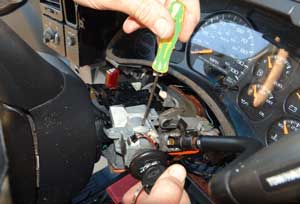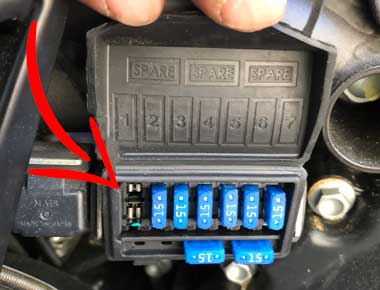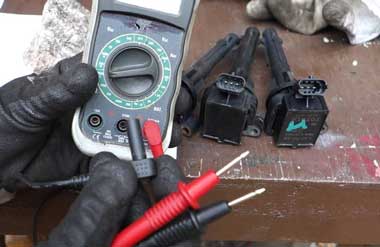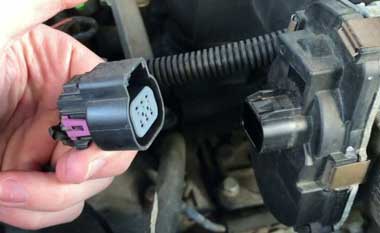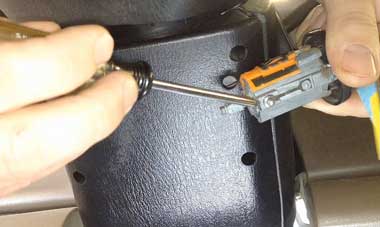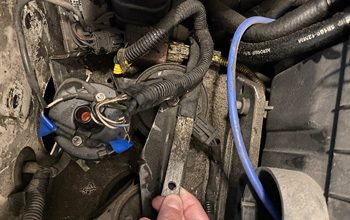What causes ignition coils to keep going bad | 6 Symptoms Discussed
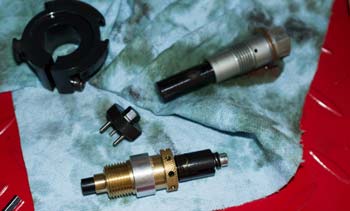
the 6 causes ignition coils to keep going bad
The ignition coil is a significant part of any vehicle’s ignition system. It mainly provides the required voltage for creating the spark and kickstart engine.
As a result, without a doubt, it becomes a vital part of turning the car on and has to be taken care of. The best way to keep an ignition coil from becoming a lousy one is to keep your spark plugs in the best possible condition.
But for many reasons, it can go bad and malfunction. It can lead your vehicle’s ignition system to fail and cause significant damage to the parts.

So, what causes Ignition Coils to keep going bad? There are several reasons for ignition coils keep going bad. Here I am discussing these.
Worn or damaged spark plugs
Damaged spark plugs force the ignition coils to function at a much higher output, putting strain on the coils. The gap in which each spark plug is fired increases as the spark plugs wear down. Hence, the coil needs to provide a higher voltage to cover the gap. Thus, the additional strain on the coil can cause voltage overload, followed by overheating and eventually failure.
Overheating
Heat increases the resistance throughout the coils, and because of this high resistance, electricity can not pass through. As the coil could not conduct electricity, the ignition coil failed to function.
Wear and tear
It is a principal reason for ignition coil failure. The insulation between primary and secondary coil windings and primary coil degrades. This degradation eventually leads to overheating and causing the ignition coils to malfunction.
Vibrations
Ignition coil windings and insulation can get damaged by vibration. It leads to shorts or breaks in the secondary windings of the ignition coil.
Battery power supply
The power supplied to the ignition coils plays a crucial role. If the battery power supply is unstable, it can cause the ignition coil to burn out and stop functioning.
Vehicle computing system
The computing system can show a failure signal because of a short circuit in the vehicle. The probable cause is a failing ignition coil. Hence, you should take the car for service as soon as possible.
symptoms of a bad ignition coil
The first thing you need to check for is the Engine Check Sign, if that is lit – scan the error code. If the error code is in the range of P0300-P0312, that stands for engine misfire, however some vehicles are capable of giving a further indication, and they might provide an erro code in the range of P0350-P0362, this signifies that you have a bad ignition coil.
Here is a list of Symptoms of a bad ignition coil:-
- Unwanted Vibrations
- Loss of Power
- Engine Light
- Rough Idle
- Smell of gas or other foul smell
- lower than average fuel economy
how long do ignition coil packs last?
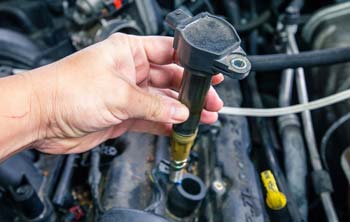
An ignition coil’s lifetime depends on its usage and surroundings even. For example: If the spark plug is old or unable to function correctly, the ignition coil will not work.
Usually, an ignition coil can last around 100,000 miles even more if all the parts are working well and no cause to harm the ignition coil.
At present, technologically advanced cars and the latest ones have a layer of protection like rigid plastic insulation for protecting the coil.
The ignition coils have copper wires inside, which get damaged over time due to heat, moisture, etc. If the wires are okay and not damaged, the overall performance will be up to the mark.
Ignition coil insulation method
Plastic molding type (referred to as PP plastic molding)
After the initial assembly, the coil is saturated with varnish for a specific time. Later on, the coil is left to dry and harden before taking it out. The inside of the coil is insulated using varnish filled. Finally, the coil gets a plastic mold covering the entire outer body.
Asphalt-filled type
Initially, the coil is put inside a metal casing, and it is filled with asphalt surrounding the coil to cover it entirely. In the case of insulation, this method is the earliest for making automotive ignition coils.
Oil-filled type
Like the previously mentioned method, here, instead of asphalt, oil is used as the insulating layer. It has impressive permeability and insulation resistance. However, the oil, namely Polychlorinated Biphenyl, is poisonous. Hence, it is risky to handle and universally banned.
Epoxy resin-filled type
The coil is placed inside a resinous case, and then it is filled with epoxy resin to use as an insulation material. The materials required to manufacture ignition coils using this type of insulation are readily available. Hence, Epoxy resin-filled ignition has become the mainstream of ignition coils for both motorcycles and automobiles.
How To Prevent Ignition Coil Failure
By following these simple tips, you’ll ensure that your vehicle runs smoothly and safely for years to come.
- Inspect Your Vehicle Regularly – It’s important to inspect your ignition system regularly to make sure it’s in proper working order.
- Use the Correct Ignition Coil – Different ignition coils are designed for different engines. Make sure you use the correct coil for your specific engine.
- Replace Worn Parts – If you notice any cracked, broken, or worn-out parts, such as spark plugs, wiring, or hoses, replace them immediately.
- Keep the Battery and Wires Clean – The ignition system uses electricity to create the spark necessary to ignite the fuel and air mixture.
- Flush the Coolant System – The ignition coils generate heat when they fire, so it’s important to keep your vehicle’s coolant system in good shape.
Overheating Ignition Coil Symptoms
Here’s what you need to know about overheating ignition coil symptoms and what you can do if they occur.
- Poor Fuel Mileage
- Stalling or Hesitation
- Difficulty Starting the Engine
- Unusual Odors
- Check Engine Light
- Decreased Power
- Engine Revving
- Higher Operating Temperatures
- Vibrations
- Damp Smell
- Loss of Spark Plug Ignition
- Excessive Smoke
- Low Output
- Acceleration Issues
- Cracks in the Ignition Coil
How To Keep Ignition Coil Cool
Here are a few things you can do to make sure the coil is cool and running optimally.
1. Make sure you have the right gap.
First and foremost, one of the most important things to do is to ensure that the gap on the ignition coil is set properly. T
2. Check your spark plug wires
If the wire is frayed, corroded, or otherwise compromised, it won’t transmit the power correctly and can lead to a much hotter ignition coil.
3. Keep it clean
Dust, dirt, and grime can collect in the ignition coil and around the spark plug wire.
4. Cooling system
One of the main ways to keep your ignition coil cool is to ensure your cooling system is in good condition.
5. Install some fans
If you’re serious about keeping your ignition coil cool, you can install electric fans to circulate air around the coil.
Can A Bad Ignition Coil Just Shut Your Car Off?
Yes, extreme cases of a bad ignition coil can cause your car to shut off abruptly. A warning sign that your car may need repair is when you experience problems with starting your car or when an intermittent spark is present.
What Are Possible Causes Of Too Hot Ignition Coil?
- Excessive Resistance
- Fouled Spark Plugs
- Worn Spark Plug Wires
- Incorrectly Set Idle Speed
What Happens If You Keep Driving With A Bad Ignition Coil?
If you ignore a faulty ignition coil and keep driving, it will eventually damage the rest of the ignition system, including the spark plugs and wiring.
The unmanaged voltage can quickly damage components, including the distributor and spark plugs. Excessive voltage can cause the wiring to burn, creating a strong burning odor in the engine compartment.
Can A Bad Coil Damage Engine?
Yes! A bad coil can cause significant damage to an engine in the short or long term.
Should I Replace All Ignition Coils At Once?
Yes! If one coil fails or goes bad, others will likely follow close behind. Therefore, replacing the coils ensures the entire vehicle operates in top condition.
How Long Do Factory Ignition Coils Last?
Regarding factory ignition coils, they are designed to provide reliable service life at or above the 100,000 miles mark. This is a fairly long lifespan for these ignition coils.
Will New Ignition Coils Improve Performance?
In short, the answer is yes. A newer spark can provide more thorough combustion, increasing the gas flow velocity to the cylinders and allowing for more efficient fuel burning. This can increase power and torque, resulting in improved engine performance.
How Do I Make My Ignition Spark Stronger?
Check Spark Plug – Check your spark plugs for any damaged or worn parts. Replace them with new ones compatible with your car’s ignition system if necessary.
Clean and Regap the Spark Plugs – You should also clean and regain your spark plugs. This will help ensure that the voltage is adequately reaching the spark plugs.
Replace the Wires – If your wires are old, worn, or damaged, they will reduce the voltage of the spark. Therefore, checking and replacing the spark plug wires is advisable if necessary.
Check the Ignition Coil – If your ignition coil is old or worn out, it can lead to a weak spark. Therefore, inspecting the coil for any signs of wear and replacing it if necessary is important.
Ask for Professional Assistance – If all these tips don’t result in a stronger spark, you should seek the assistance of a professional auto expert.
What To Do After Changing Ignition Coil?
To get you started, here are some tips on what to do after changing your ignition coil.
1. Check the Connections – The first thing to do is check all the connections for the new ignition coil and ensure that everything is firmly in place.
2. Test the Ignition Coil – Once you’ve ensured everything is connected properly, it’s time to test the ignition coil.
3. Inspect the Coil – Although you’re likely to have replaced the coil with a new one, you should still inspect it to ensure no visible damage.
4. Replace the Spark Plugs – The spark plugs will wear over time, and even with a new ignition coil, their performance will suffer if they’re too old.
5. Reset the ECU – After replacing the spark plugs, it’s important to reset the ECU (electronic control unit) in your vehicle.
6. Test the Vehicle – Once you’ve completed these steps, you’ll be ready to test your vehicle. Start it up and make sure that it’s running smoothly.
How can I tell which ignition coil keeps going bad?
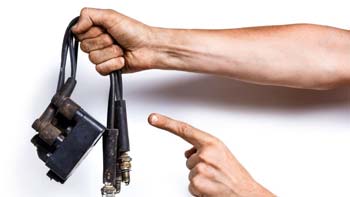
Ignition coil packs are, nowadays, many in the market. It might get confusing to choose or detect which one is bad or won’t work correctly. You can detect the lousy coil pack by some visible signs.
- There are some signs in the initial stage that you can look for. You can check the coil pack for any detectable burn marks, cracks, or corrosion carbon tracking. The coil’s housing can also have oil leaks, so; it would be best to inspect the housing and system’s wire.
- Any bag ignition coil pack can cause a rough idling engine. It is a big deal as it can cause massive damage to your engine, even allowing it not to run.
- Your engine can get a bit louder compared to regular. This more audible engine can be a sign of the lousy ignition wires.
- You can also notice that the power is lessened than in the initial stage. The bad ignition coil might be the reason.
- The car’s RPM or revolution per minute has decreased by a lot over time. A bad ignition coil pack usually causes this problem.
- The “check engine” signal might start blinking or get activated intermittently instead of slowly illuminating. This sign can be a problem caused by a bad coil pack.
Can a bad ignition coil cause transmission problems?
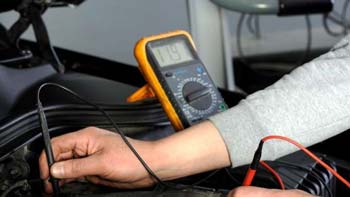
In the case of old-model cars, shifting depends on the engine vacuum. When the engine misfires because of a malfunctioning ignition coil, the void in the intake manifold reduces and provides incorrect load information to the transmission vacuum modulator.
Hence, the shifting is delayed and happens harshly. The transmission will be affected only to this extent because of a defective ignition coil.
However, damage to the engine is more probable than the transmission if the issue is not fixed.
Frequently Asked Questions
#1. Why Does My Ignition Coil Keep Burning Out?
A large gap between the spark plugs can cause the coil to overheat and short circuit. Then again, if the battery power supply provides unstable power, the ignition coil may burn out.
The vehicle computing system can show a failure signal indicating a possible short circuit in the system, which is probably a malfunction in the ignition coil.
#2. What Causes Multiple Ignition Coils To Fail?
In case of repeated coil failures, it may be that the coils are functioning too hard than necessary. It can happen because of high secondary resistance.
This increased resistance is usually caused by a damaged or worn-out spark plug or too much gap between the plugs.
#3. Why Does My Car Keep Blowing Coil Packs?
One of the principal reasons is because of the old age of your car. Apart from this, super high voltage can blow up coil packs too.
When the super high voltage is built up inside the coil it fails to find any ground through the distributor cap, rotors, it could blow up. Hence, keeping the components in tip-top shape is very crucial.
#4. What Are The Signs Of A Bad Ignition Coil?
Here are some signs that indicate your ignition coil is bad.
– Vehicle backfiring
– Vehicle stalling
– Poor fuel economy
– Problems starting the vehicle
– Engine misfiring
– Jerky engine, rough idling with insufficient power
– Engine hard starting
– ‘Check engine’ light on
#5. How Can You Tell If An Ignition Coil Is Bad?
While inspecting the ignition coil, the coil has gone bad if there are any visible burn marks, corrosion, wear, and tear. In case of damage not visible to naked eyes, you can use an ohmmeter to find resistance across the coil to see if it is too high or not.
There are also tools like COP probe and oscilloscope available in the market for a more thorough inspection.
#6. Can You Drive With A Bad Ignition Coil?
The better answer to this is, “Should you drive with a bad ignition coil?” It is not advised because the faulty ignition coil will affect other components of the car.
Eventually, the entire system can break down. Hence, it would help if you repaired the defective ignition coil within a week before it starts affecting any other parts of the car.
#7. Should I Replace All Ignition Coils At Once?
You should not because one coil pack is used for two engine cylinders, and you should only change the faulty one. Either the coil pack functions or does not; there is nothing in between.
Hence, one defective coil pack does not affect the other working ones. On the contrary, Old coil packs in working condition are more reliable than the unopened, brand new ones.
#8. Have replaced spark plugs and ignition coils but still engine light comes up – why ?
If you have tried everything and still engine light comes up, in some vehicles specally variants of ford, the main computer might need to be reprogrammed to get rid of the engine light re-appearing after part replacement. If this be the case, just other symptoms like air conditioner compressor shutting down. Not many dealers or mechanics would understand or know how to reprogram the main computer. Although it might be a bit expensive, but better to check in with an authorized ford dealer who is skilled to reprogram the main computer. Please don’t rely on the dealer who suggests that you need to replace the main computer or nothing can be done without double checking.
#9 Symptoms are identical for bad pump and bad coils, Is there any symptom specific to a bad coil?
Unfortunately, no, however there are ways you can zero in on whether it is a bad coil or a spark plug. If you have recently replaced a spark plug chances are its a coil, try switching the coils to see if the that moves the error from one place to another on the scanner, if it does chances are its the bad coil.
Conclusion
The ignition coil is crucial for a car to function. Even though there can be some minor problems, they can be resolved relatively quickly if addressed at the right time. In the end, with ignition coil problems, there is nothing to be afraid of nowadays.
The parts required for repair are pretty easily available in the market at an affordable price. I hope “What Causes Ignition Coils To Keep Going Bad” will help to find out the reasons

